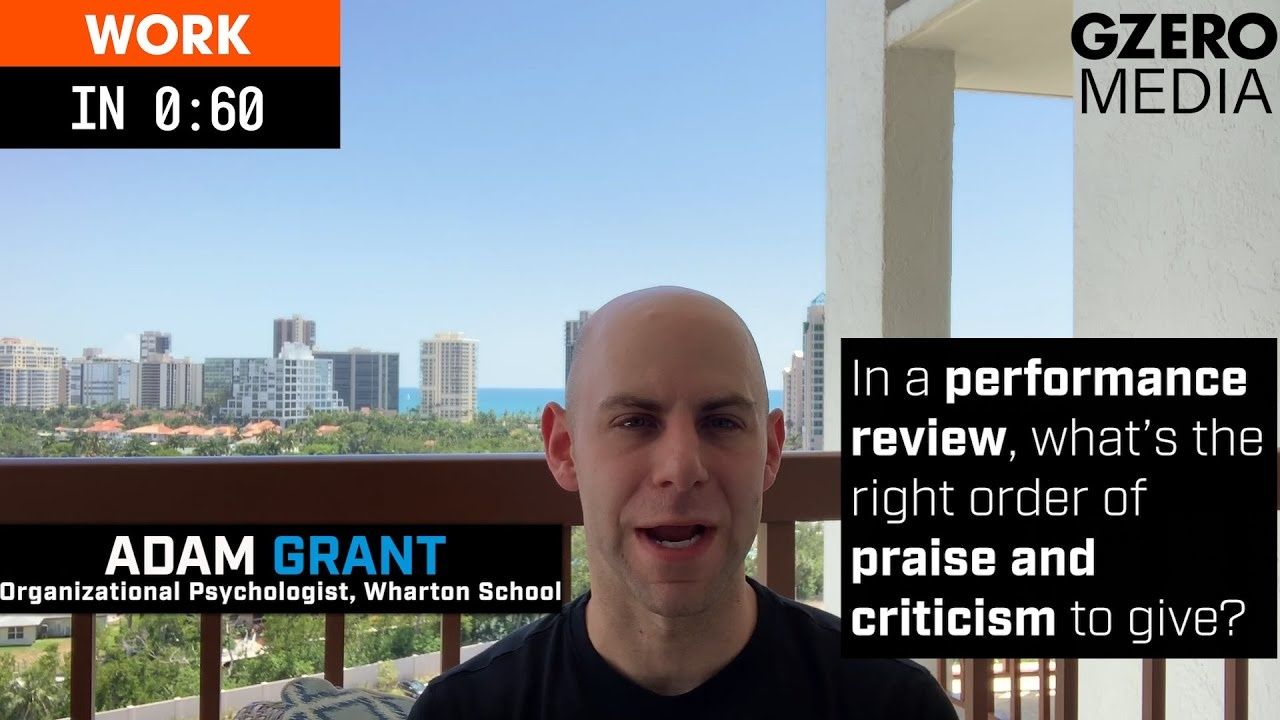
In a performance review, what's the right order of praise and criticism to give?
Well a lot of people love the feedback sandwich. You know where you stick the meat of criticism in between two slices of praise. But I have to say that's a bad idea because the feedback sandwich does not taste as good as it looks. My biggest problem with the feedback sandwich is that in our memories primacy effects and recency effect tend to dominate. We remember the things that happened at the beginning and at the end and whatever's in the middle often fades, which means people might forget the criticism altogether.
You actually just want to give one slice of praise along with your criticism not two. So what goes first? Should it be the good news or the bad news. I think the answer actually depends on the recipient's frame of mind. If the recipient is extremely open then you can actually come right in with the bad news. That also helps if they're nervous because as Dan Pink writes in 'When', we prefer sequences that rise rather than those that fall. And so you can end on a high note. If you tell them, "hey, here's the area that I'd love for you to work on and here's the one thing you did best."
But, if you have a defensive recipient somebody, who might be close minded or narcissistic then you actually want to go the opposite route. Psychologists call it self affirmation where you praise in one domain and then you criticize in a completely unrelated domain. And that way it doesn't sting as much, because you're not threatening their whole ego, you're telling them, "hey, you know what? You were really creative this quarter, your decision making was just terrible."